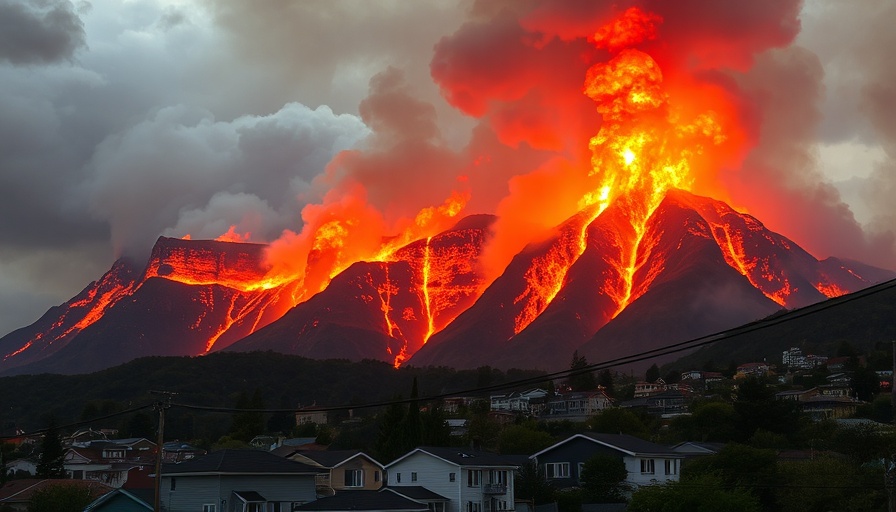
Table Mountain National Park Engulfed in Flames: A Community's Response
In the early hours of February 23, 2025, a significant fire broke out in the Newlands area of Table Mountain National Park, prompting a swift and coordinated response from SANParks. By 3:40 AM, over 50 firefighters were mobilized alongside aerial resources to tackle the blaze, which was reported to be high on the mountain and challenging to access. SANParks spokesperson Charles Phahlane has urged the public—especially hikers—to steer clear of the area, both for their safety and to allow emergency crews to operate effectively.
The Challenges of Fighting Fire on Table Mountain
The rugged terrain of Table Mountain presents unique challenges for firefighting efforts. Firefighters have struggled to find adequate water sources, severely limiting their ground operations. Aerial support has since been dispatched to battle the flames from above. Phahlane noted that as the fire has spread further, it has posed a risk to popular trails like the Lady Anne Barnard trail, prompting the closure of surrounding areas, including those near Kirstenbosch Gardens.
This incident is not an isolated case; just a few weeks prior, similar conditions led to evacuations in Redhill due to an escalating fire. The combination of strong winds and dry conditions has consistently threatened this biodiverse region.
Environmental Impacts and Historical Context
Table Mountain is not merely a natural wonder; it represents part of South Africa’s rich biodiversity. However, it also has a history of suffering under the pressures of climate change, urban encroachment, and management challenges. Past incidents have raised concern about the effectiveness of conservation strategies within national parks, especially in the face of recurring fires. The impact of such fires extends beyond the immediate danger to firefighting personnel and visitors; they threaten local flora and fauna and disrupt the delicate ecosystem. As climate change exacerbates weather conditions across South Africa, discussions surrounding effective environmental management grow increasingly relevant.
Community Response and Support Initiatives
As the fire rages, local communities and organizations are mobilizing to provide support. Initiatives are emerging to offer food, water, and mental health resources to firefighters and affected residents alike. The community's resilience under pressure is noteworthy, with local businesses rallying to support those who are risking their lives to protect the park. This event has ignited conversations around communal responsibility for environmental conservation and safety.
The Broader Implications: Climate Policy and Government Action
These recurring disasters prompt critical discussions around climate change, governance, and resource allocation in South Africa. The role of government in managing national parks and implementing effective fire management policies is under scrutiny. Critics argue that the fund allocation for environmental conservation is inadequate, particularly in light of the escalating crisis. Recently, reports have highlighted that as South Africa deals with issues like load shedding and the Eskom crisis, environmental management is frequently overshadowed despite its importance to public health and safety. This trend reflects a growing need for a paradigm shift that prioritizes environmental resilience and sustainable tourism.
The Need for Enhanced Communication and Precautionary Measures
Real-time updates and communication strategies during emergencies have also come under the spotlight. Authorities are continuously prompted to enhance their outreach, ensuring that information is readily available to citizens as situations develop. The recent fire serves as a reminder of the importance of community preparedness and the necessity for authorities to establish protocols that protect both the public and the environment.
Conclusion: The Call for Action
As the circumstances surrounding the fire at Table Mountain National Park remain fluid, ongoing vigilance from both residents and visitors is critical. The situation urges all stakeholders—from government bodies to local communities—to engage in earnest discussions around climate action, effective policy measures, and risk preparedness. Public awareness and involvement in ecological conservation could foster a more resilient future for shared natural spaces, ultimately ensuring the preservation of South Africa's rich environmental heritage.
 Add Row
Add Row  Add
Add 




Write A Comment